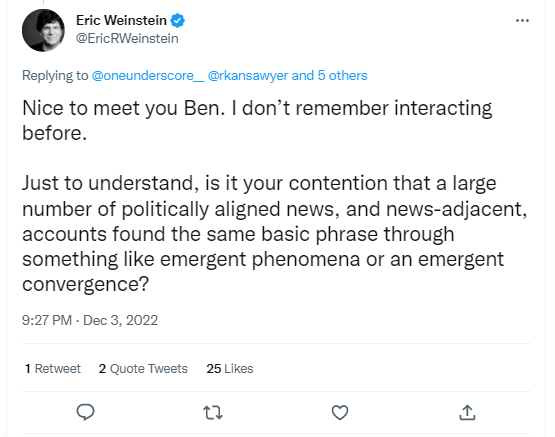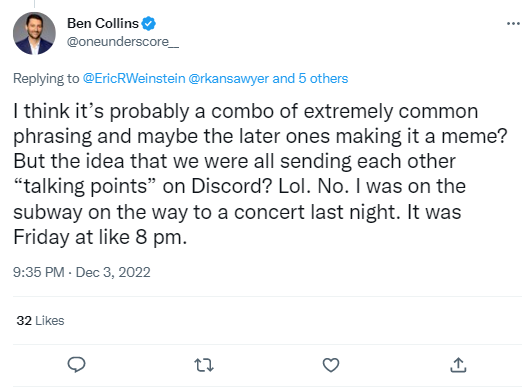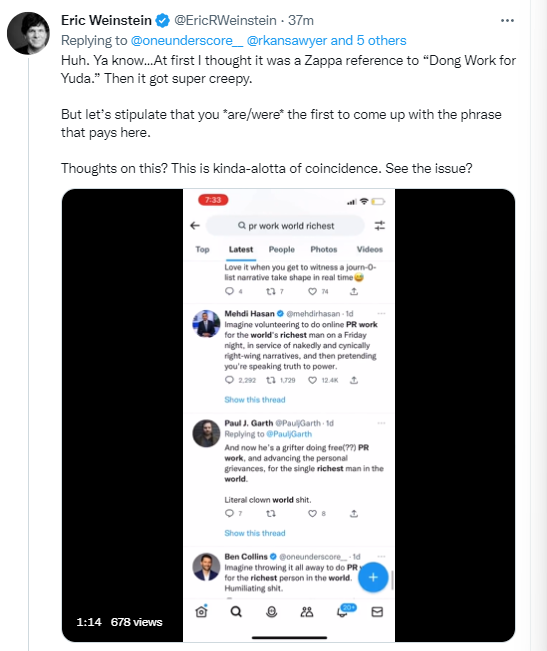Some people call the problem "hubris," which makes it sound like it's a problem stemming from conscious conceit. I see the problem as more insidious. The cause is completely silent and invisible, capable of toppling us in broad daylight even when we are trying to be step-by-step careful with our facts and analysis. Daniel Kahneman warned us ever so clearly in Thinking: Fast and Slow.
The silent process by which our thought-process falls off the rails is based on a cocktail that includes confirmation bias (evidence that conflicts with our view of the situation is invisible) and WYSIATI (We tend to focus on the thing in front of us to the exclusion of everything else). Jonathan Haidt warns us that the only way to protect ourselves from the confirmation bias is to engage with a heterodox crowd, constantly and enthusiastically subjecting ourselves to many viewpoints and perspectives, including those we find distasteful and sometimes even odious. Engaging with otherly others is the only way to protect ourselves from falling off the rails. The key is that you can't merely pretend to listen to other viewpoints. You gain nothing by trying to simply look open-minded. You need to consciously entertain those viewpoints and to let those often distasteful challenge your deepest convictions.

I suspect that "hubris" mostly caused by the thought that although other people fall off the rails, we are immune because we are especially smart/careful/creative/self-critical. That overconfidence makes us vulnerable to massive intellectual failures that can only be seen by others, not by ourselves. Sam has been brilliant for many years on many topics. He has engaged with some of the most serious-minded people in the world on complex topics. The paradox is that even though his work serves him well as an intellectual gymnasium, it seems to have given him the false confidence that he was so good that there was no risk that he would fall off the rails. Maybe he assumed that his own impressive intellect (and it has been impressive) did its on self-critical thinking. It often did. But that is not enough. One cannot really also be one's own critics, not day in and day out.
Choosing to test our views by subjecting them to views other other people that we find distasteful is John Stuart Mill 101. Those who fail to do this don't understand the views of anyone else and they don't even understand themselves. JSM: “He who knows only his own side of the case knows little of that."
Sam Harris has been running through more than a few stoplights over the past few years. He has often become intensely personal in his attacks against extraordinarily thoughtful people such as Glenn Greenwald and Brett Weinstein. His recent decision to cancel his Twitter account also seems to be a personal attack aimed at Elon Musk's quest to disband most of the censorship department at Twitter. Sam's recently-expressed hesitance about free speech, however, is a dangerous short-term myopic reaction. Sam didn't appreciate it, but he needed more exposure to more viewpoints that challenged his own. He needed this strong medicine regarding his rigid views on CDC guidance re COVID, for example, something that he finally seemed to admit a few days ago on his visit with Bill Maher on the Club Random podcast.
[More ... ]







